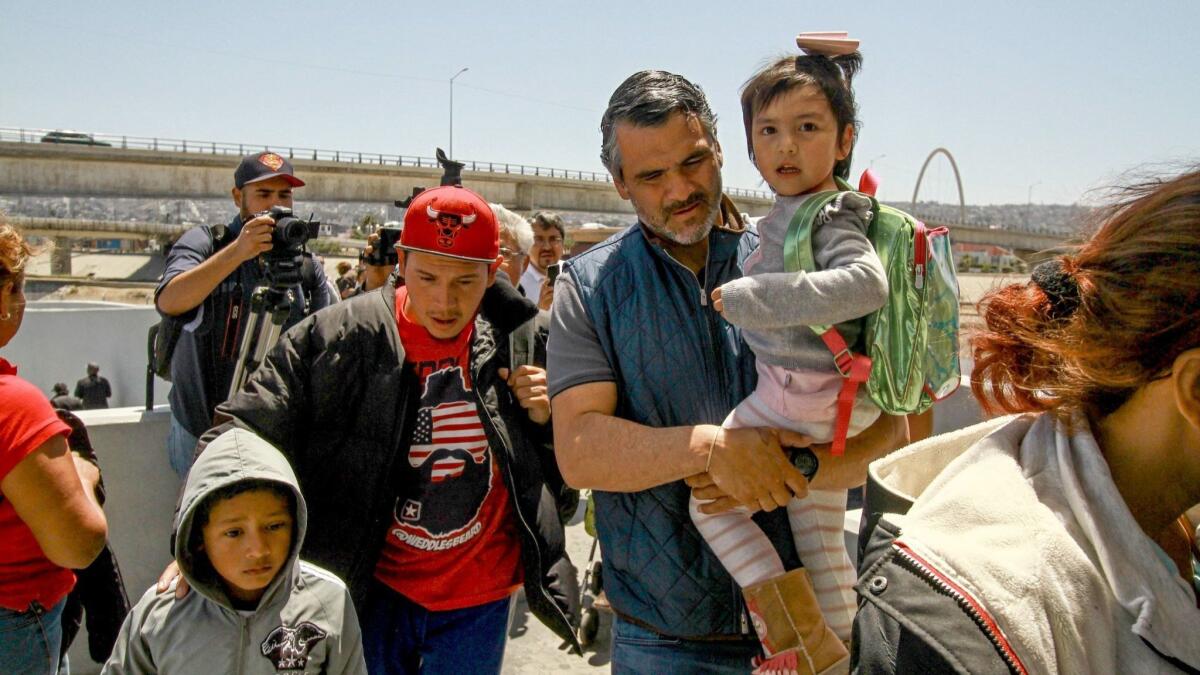All migrants in caravan seeking asylum have crossed into the U.S.

- Share via
Reporting from San Diego — The last group of asylum seekers from the Central American caravan crossed into the United States on Friday morning.
A little after 9 a.m., a group of about 70 walked into the U.S. port of entry as friends planning to stay in Mexico waved goodbye; some cheered as the others walked into the U.S.
Since arriving in Tijuana on Sunday, approximately 228 members of the caravan have entered the U.S. to ask for asylum.
Just because they entered the country doesn’t mean they will stay. The asylum process takes months, if not years, to complete, and applicants from Honduras, Guatemala and El Salvador have high denial rates, records show.
As the asylum seekers left their makeshift tent city a few feet from the border, those who chose to stay in Mexico packed up.
Among them was Mario Mejia, 35, of El Salvador. Mejia joined the caravan from the beginning at the Guatemala-Mexico border.
He hoped to cross into the U.S. with his wife but decided not to go after a lawyer told him he had a weak case.
Mejia has five deportations on his record from 2010 to 2013 for trying to cross from Mexico into Arizona. The latest one resulted in an 18-month stint inside an immigration detention center in southern Nevada, he said. Should he be caught again, he would face three years in detention.
“I’m happy for the people who have the opportunity to go,” he said. “My wife has never been to the United States. She was very excited for the opportunity.”
The last thing he told his wife was, “keep moving forward,” he said.
Mejia, who fled gang violence in El Salvador, won’t be able to stay in Tijuana permanently. The Mexican government denied his asylum claim a year ago.
“I don’t know what I’m going to do,” he said.
Solis and Hernandez write for the San Diego Union-Tribune.
More to Read
Sign up for Essential California
The most important California stories and recommendations in your inbox every morning.
You may occasionally receive promotional content from the Los Angeles Times.












